Oh, Canada!
So let’s get it out of the way first: I may be slightly biased, due to being Canadian, but I’ve got to tell you — Canada is one of the most beautiful countries in the world. It’s kind of got everything, from breathtaking landscapes to wonderful people, and so many only-in-Canada animal encounter opportunities (kayaking with beluga whales, anyone? Or how about hanging out with polar bears in their natural habitat?) I truly believe Canada is one of the best countries to travel across.
Unlike most of my fellow Canadians, I’ve had the pleasure and privilege of exploring my homeland in depth. It’s something I’ve prioritised doing even more since the pandemic, spending loads of time in Toronto, Montreal, Ottawa, and Vancouver, and road-tripping from east to west across the entire country. It’d be fair to say I know Canada like the back of my hand.
As a result, I have plenty of firsthand knowledge of how much it costs to travel in Canada, and most importantly, how to save money on experiences as you do so.
I can’t sugar-coat it, so I’ll hold my hands up and confess that Canada isn’t a particularly budget-friendly destination, especially if you’re coming here to enjoy it as a visitor. It’s one thing to live frugally as a student, but another to be a tourist. That being said, there are so many ways to enjoy your time here to the fullest without breaking the bank and sleeping out in your car every night.
If it’s possible, come visit us in Canada with a decent amount saved up (I’ll tell you how much to budget for each day), safe in the knowledge that spending that money will be 100% worth it. The expression spend your money on experiences not things will hit closer to home once you’ve seen what this country has to offer.
Today, I’m going to be sharing exactly how much it costs to travel in Canada, so let’s get started.
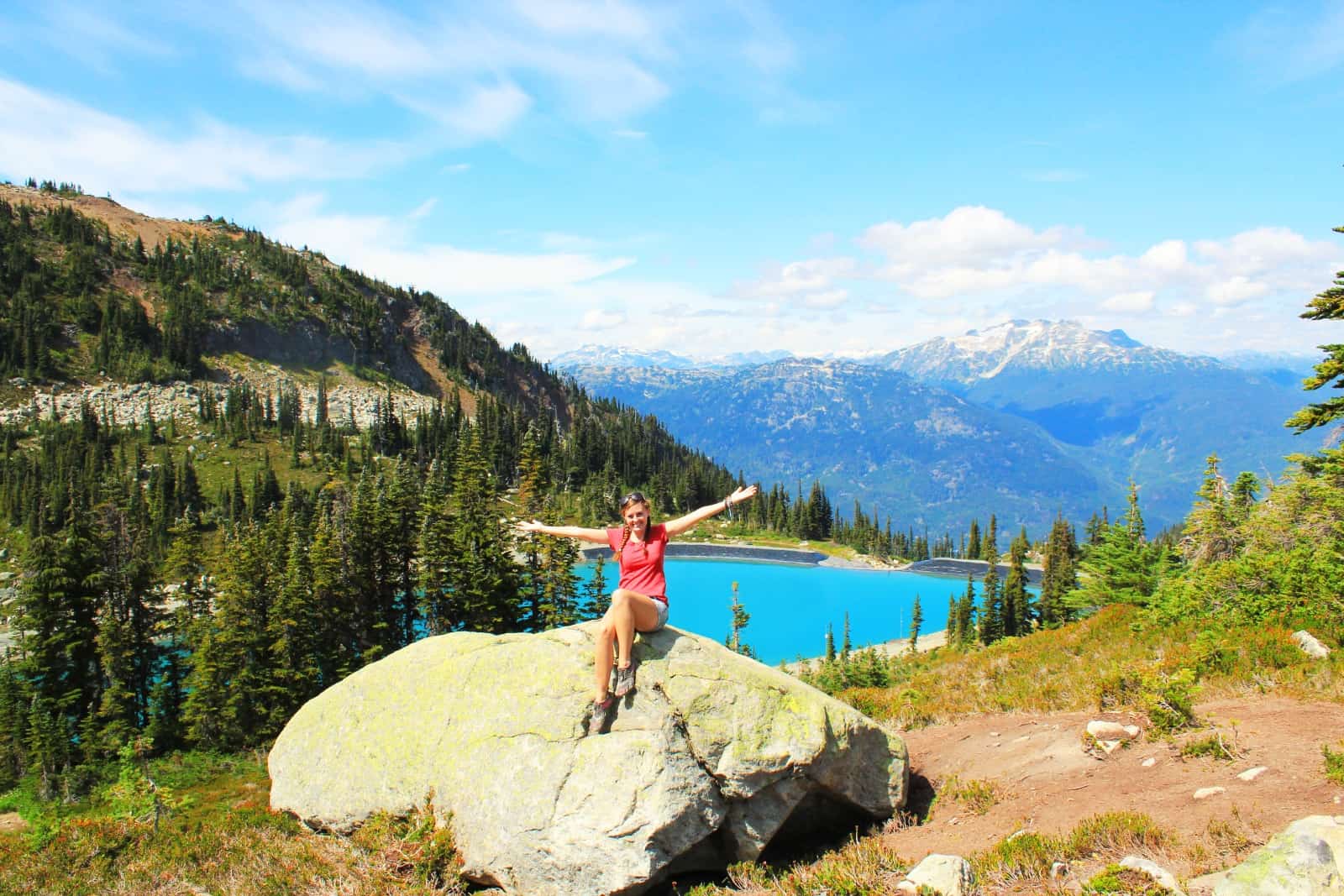
What’s Included in this Post
This budget breakdown covers how much I spend on accommodation, transportation, activities, and food as I travel around the country. I’ve not included flights into and out of Canada, since this is going to vary significantly based on where you’ll be arriving from.
The amounts in this guide are listed in U.S. dollars, simply because most of my readers are from the United States, as are the vast majority of visitors to Canada. If you’re converting U.S. dollars, euros or pounds to our weak Canadian dollar, then your time here might also feel more budget-friendly.
Okay — let’s get started!
How to Save Money on the Cost of Accommodation in Canada
As always with travel, it’s possible to cut your accommodation costs down to zero if you have the time and patience to seek out an offer.
Housesitting is a great option for free accommodation. This is where you’ll take care of somebody’s house while they’re away, and usually look after their pets, too. It’s best for long-term travellers or retirees: because you can’t pick and choose dates and destinations, you need to have a lot of flexibility as to where you go and at what time of year. If you do have that freedom, it’s a wonderful way to cut down your travel expenses, soak up some home comforts, and live like a local for a while. I have friends who have housesat in castles before! For free! Trusted Housesitters is the best site for getting started with housesitting, as they have the highest number of listings.
I’m suspecting, though, that for most of you, you’re not interested in the free accommodation and just want somewhere clean, safe, and affordable to rest your head each night. If that’s the case, there are several options available for you.
The Cost of Accommodation in Canada
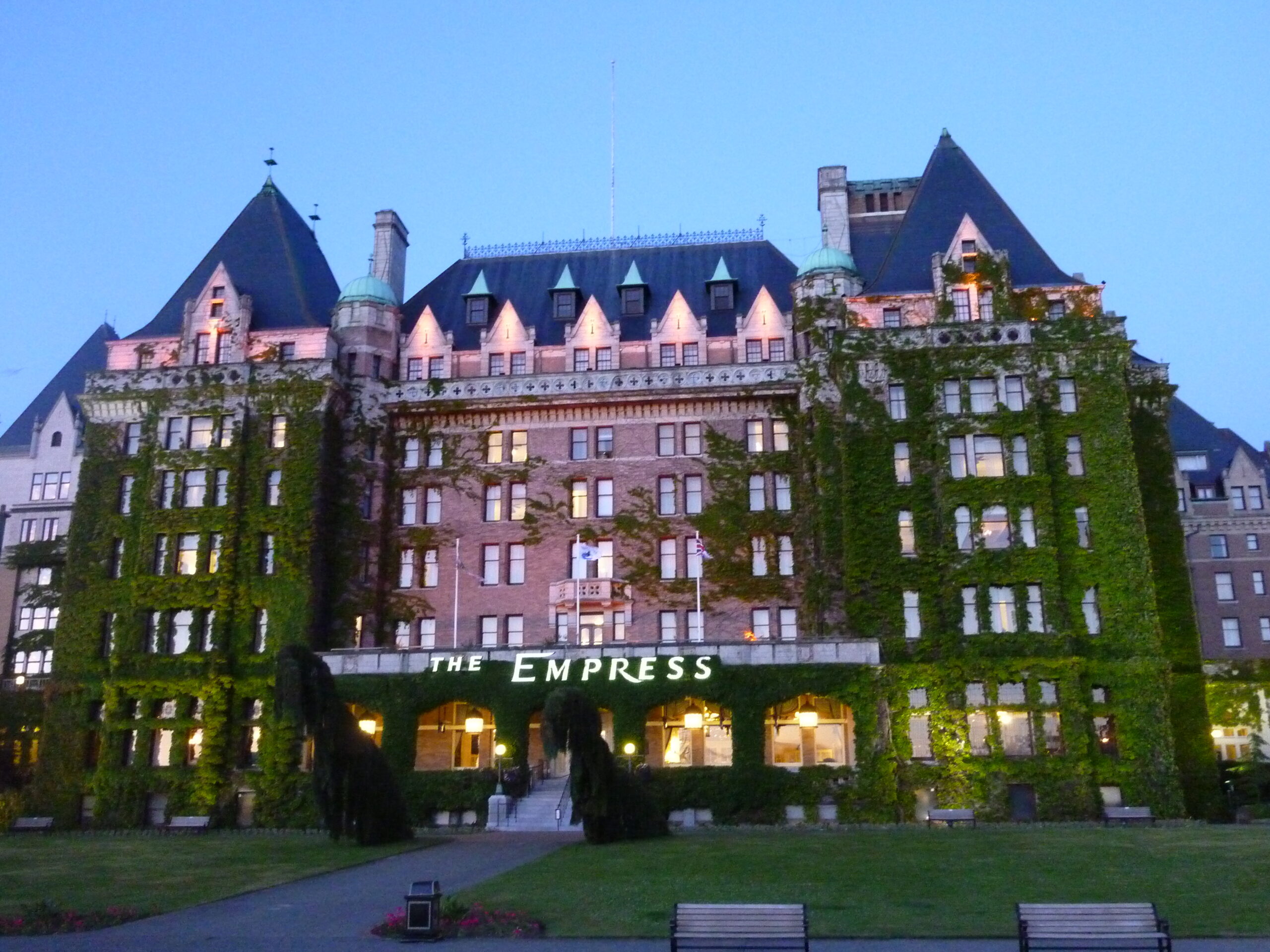
If you’re feeling particularly adventurous and frugal, you could opt to drive and camp your way through Canada. This can cost you as little as $20 a night, but be sure to reserve your spots with Parks Canada ahead of time as campsites can get full very fast.
If camping doesn’t appeal, it’s time to check out hostels. In Canada, you’ll come across hostels all over the country, finding them on tiny islands, in large cities, and even in the national parks. They’re one of your best options for saving money.
Hostels in Canada are on a par with the rest of Northern America, and you can expect to spend around $25-30 a night for a dorm bed for a well-reviewed hostel in Canada, with the price increasing to about $40-50 a night for the absolute best of the best.
When it comes to private rooms in hostels, prices vary quite a bit depending on where you’re going and the time of year. Over the last few months I’ve booked really nice private rooms for as little as $65 in shoulder season, but they’ve cost anything up to double that at peak times in major cities. Either way, if you’re travelling with friends or your partner, you may find it cheaper to grab some privacy over settling for two beds in a dorm.
I use HostelWorld to find the cheapest hostels, as they tend to have the greatest number of listings at the lowest prices.
And, of course, there are always hotels, which usually come in at around $150-$200 a night for a decent, clean, mid-range property in a central location. I always use Booking, as they have the most accommodation options for the cheapest prices.
Toronto — Elegant Downtown Homestay ($196 a night): While you’re in Toronto, you can’t pass up staying at this lovely homestay. The location, quality, and affordability (for the area) can’t be beat. You want to be as central as possible during your time in Toronto and this stylish house is right near popular spots like Yonge-Dundas Square and the Distillery District while still being nice and quiet at night. I loved how clean and modern the rooms were, with a super-comfortable bed, smart TV, and coffee machine to get me started in the morning. What really made this place special, though, is just how nice the hosts were: it really did seem like nothing was too much bother!
Montreal — Maison Saint-Vincent ($188 a night): Right in the heart of historic Montreal, you couldn’t ask for a better location for this great little hotel. It’s only a couple of minute’s walk from Notre Dame cathedral, with so many restaurants and cafes nearby that it was hard to choose where to go each night! The rooms were comfortable and modern, and came with an iPad loaded with useful neighbourhood information and an all-important Nespresso machine. There’s a kitchenette on each floor, with a designated area in the fridge for each room, and free croissants in the lobby each morning; that’s how I really knew I was in Montreal!
Ottawa — Auberge des Arts Bed and Breakfast ($96 a night): I really couldn’t ask for better-priced accommodation in a better location than what I got at Auberge des Arts. Right beside the Byward Market in downtown Ottawa, it’s close to all the action while still being on a quiet street away from traffic noise. Major attractions like the National Gallery were barely a five minute walk away! Beyond the location, though, the place is just charming, and couldn’t have been further from a generic hotel stay. My room was lovely and spacious, with a very comfortable bed, and the owners couldn’t do enough for me, from waiting up for my late arrival to cooking up an incredible breakfast that still catered for my dietary restrictions!
Vancouver — Finding high-quality affordable accommodation in Vancouver isn’t always easy, but a rare exception is the excellent Times Square Suites ($209 a night). I really liked this hotel; not only does it not break the bank, but it’s in a great location in a leafy part of the city’s West End, only a quick walk from Stanley Park, Vancouver Harbour, English Bay, and all the great eating and drinking options along Robson Street. It’s not just the location that made this place special, though: my room was much more spacious than usual for a major city, and immaculately clean. The bed was nice and comfortable, and I can’t say enough good things about the staff: their restaurant recommendations in particular couldn’t have been better!
Halifax — I absolutely adored my stay at the Prince George Hotel. Not only is it the most central property in town, but they offered so many additional amenities for the price. For $208 a night, I had access to a spacious, clean, and modern room, as well as a swimming pool, gym, and sauna – always appreciated! The breakfast was a vast buffet set-up, with everything you could possibly need to fuel your day’s exploration. Throw in a wonderfully comfortable bed and you’ve got yourself the perfect stay in Halifax!
Banff — Peaks Hotel and Suites ($187 a night): Considering that Banff is one of Canada’s most expensive vacation destinations, this place felt like a real bargain. My room was spotlessly clean and very spacious, with a comfortable bed and fantastic rain shower. The staff were lovely, and I really liked the little lounge area with free tea and coffee all day. I also got access to a bunch of amenities like a pool, hot tub, and gym at the sister hotel over the road: there’s a buffet breakfast available at that hotel as well, but all the restaurants and cafes in central Banff were only a short walk away, so I mostly ate there instead!
The Cost of Transportation in Canada
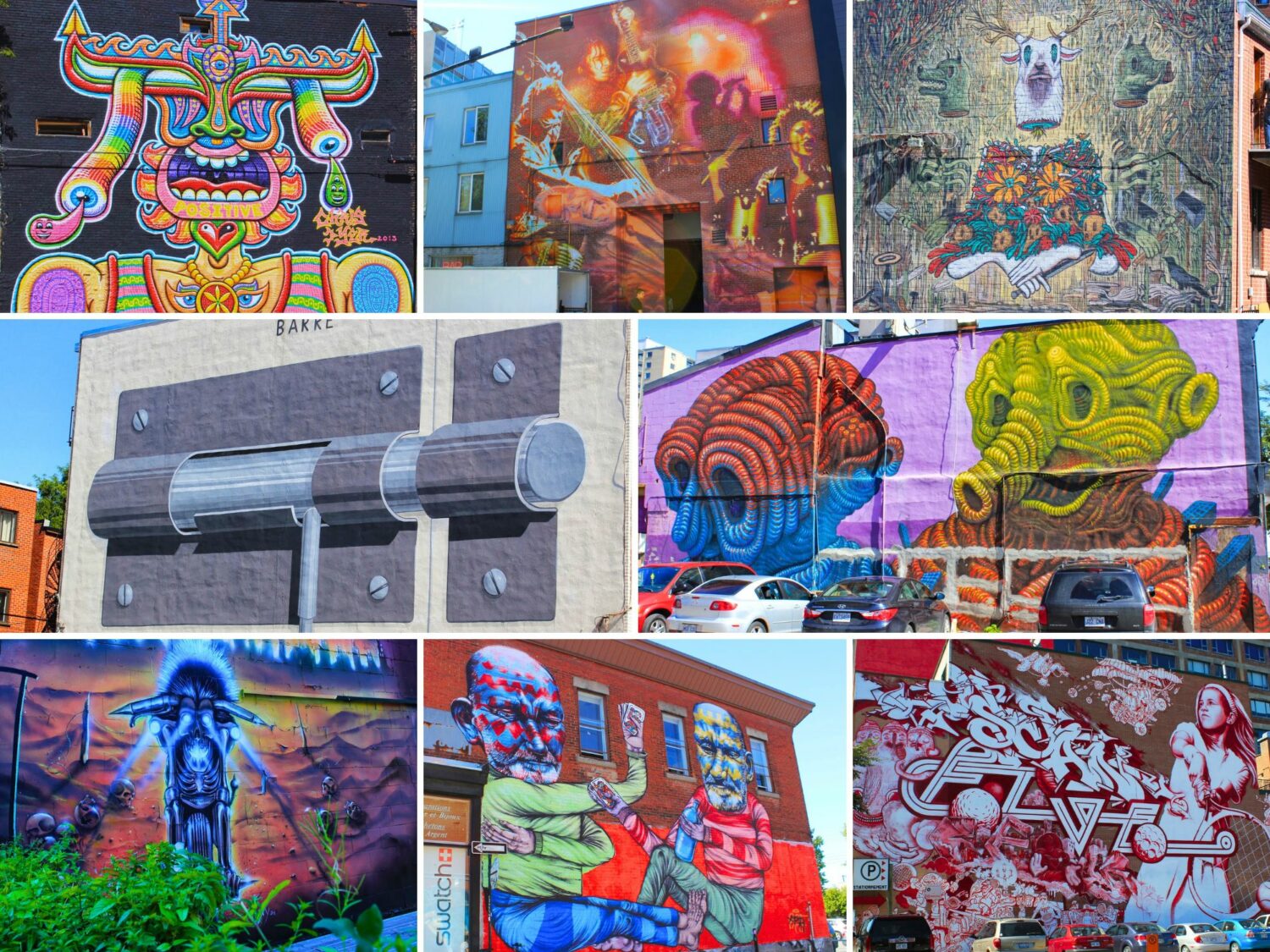
Car Rental — This is the main way that I’ve explored Canada and I can’t recommend it enough. Nothing else gives the same amount of flexibility, especially when it comes to getting into the national parks and many other beautiful but isolated parts of the country. If you have the time and are comfortable behind the wheel, there’s no better way to travel.
You can find great rental deal rates by using RentalCars.com in Canada, which is who I use to find cheap rentals all around the world. To give you an idea of the average cost, a two-week economy car rental from Vancouver to Toronto costs around $1736, which ends up being around $124 per day. That’s not including the cost of gas or insurance, but if you were to split this with one or two other people, it’s still pretty affordable! You’ll also pay a lot less if you return the car to the same place you rented it from.
Keep in mind that you need to be at least 25 years old to rent a car in Canada.
Bus — This is a more affordable but less flexible way to get around Canada: it wouldn’t be my first choice for long-distance travel, but can be the best way to get between cities that aren’t far apart (by Canadian standards!). If your trip is mostly confined to cities near either the east or west coasts, this can be a great way to save money.
If you’re going to take a bus, I’d recommend Megabus for travel in Ontario. I used Megabus often while I went to university in Ottawa and it was comfortable, reliable, and affordable. As an example, they’ll take you between Toronto and Montreal for only $54! A couple of other good options for bus travel in Canada include:
- Coach Canada: Toronto, Montreal, Kingston, Niagara Falls and Hamilton
- Rider Express: Vancouver/Calgary, Winnipeg/Regina, Calgary/Edmonton, Edmonton/Regina
Train — If the idea of traveling by long-distance train across Canada sounds appealing (and why wouldn’t it?), check out Via Rail. With close to 8000 miles of track across eight provinces, you’ve got plenty of options when it comes to riding the rails. I’ve used Via Rail frequently in Ontario, and know many people who’ve used it to travel all around the country.
If you want to see a lot of Canada in a short space of time, this is the way to do it. Get your camera out and prepare for jaw-dropping views. Here are some of the most popular routes and their one-way economy fares (taxes not included):
- The Canadian Route ($381): Toronto – Vancouver, 4 nights/4 days
- The Ocean ($113): Montreal – Halifax: 1 night/1 day
- The Best of Manitoba ($179): Winnipeg – Churchill: 2 days/2 nights
- The Pacific North Coast ($121): Jasper – Prince Rupert: 2 days/1 night
Flying — For a long time, flying across Canada cheaply was unheard of. That’s the reason why so many Canadians weren’t able to do much travelling within their own country: it was just cheaper to fly to Europe than it was domestically.
But over the past number of years, there’s been an influx of budget-friendly airlines in Canada that make flying a much more viable option if you want to quickly cover a lot of ground. Air Canada is the country’s biggest airline, but you’ll usually find cheaper prices with WestJet, Flair Airlines, and Swoop. In my opinion, you can’t really go wrong with any of these airlines for a domestic trip.
Here are some of the most common one-way routes and their average prices for an economy seat. I use Skyscanner to research all my flight options, since it consistently brings up the best fares.
- Toronto to Vancouver — $59
- Toronto to Halifax — $57
- Calgary to Vancouver — $36
- Toronto to Calgary — $62
- Montreal to Vancouver — $145
City Travel — When you’re sightseeing in a major city, the best way to get around is local transit. You can tap your credit or debit card on the reader in most major cities including Vancouver and Toronto, which is convenient if you’re only going to take public transport a few times.
If it’s something you’ll do regularly in Ontario, though, you’ll get free two-hour transfers if you use a Presto card instead. This tap-and-go card lets you pay for travel across 11 regions, including Ottawa and Toronto, and can be bought online or in-person.
If you’ll be doing a lot of travel on public transport in a single day, it’s worth picking up a day pass for whatever city you’re in instead. Fares for a few of the major cities include:
- Toronto TTC Day Pass: $10 per person
- Vancouver TransLink Day Pass: $8.35 per person
- Montreal Day Pass: $8.15 per person
- Ottawa OC Transpo Day Pass: $8.75 per person
The Cost of Food in Canada
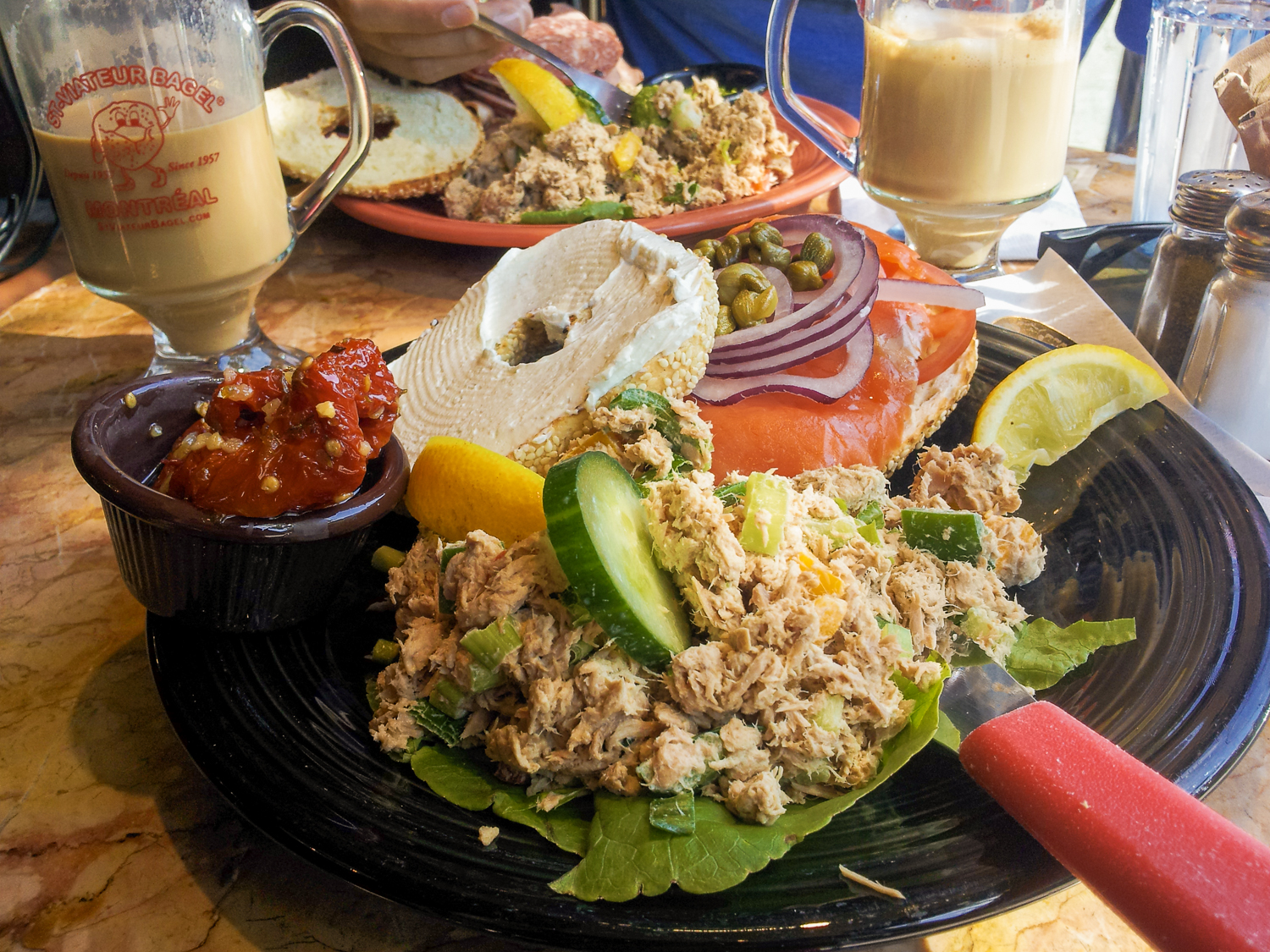
Picture your favourite dishes from around the world, all in one place—that’s what it’s like to eat in Canada! Delicious and authentic eats can be found in nearly every corner of the country, from Vietnamese to Ethiopian to Italian and many others.
While there aren’t many “Canadian” dishes, you definitely have to get your hands on some poutine and a beavertail (don’t worry, not an actual one!). Beavertails are stretched pastries made out of fried dough to take the shape of their namesake; they can be topped with anything from sugar to peanut butter to chocolate. One of my favourite Canadian must-dos is to go skating, followed by a warm beavertail and hot chocolate; there’s truly nothing better in the winter. That combo costs around $9.
Poutine, if you haven’t heard of it before, is an absolute Canadian classic. Combining French fries with melted cheese curds and savory gravy, it’s not the healthiest of meal choices, but it is one of the most delicious. Your taste buds will thank you for this messy masterpiece, and your wallet will too: you can expect to pay $14 for more food than you know what to do with.
If you happen to find yourself in Montreal, run, don’t walk, to the nearest bagel store. Denser and chewier than traditional bagels, the ones you find in this city are slightly sweet thanks to a touch of honey in the dough. The real magic, though, lies in the iconic “Montreal-style” topping: a generous helping of sesame seeds baked right onto the crust. Pair this with a schmear of cream cheese, smoked salmon, or classic roast meat and mustard, and you’ve got an absolute taste sensation. St-Viateur makes particularly good ones, but competition is fierce so it’s hard to go too far wrong anywhere. You’ll pay around $10 for one.
And of course, no trip to Canada is complete without multiple Tim Hortons coffee runs, which by the way, are very budget friendly. You can get a coffee and bagel for as little as $3!
The cost of food ranges depending on what you like to eat and how much you like to eat at restaurants. That being said, there’s plenty of ways to eat on a mid-range budget. Fast food costs anywhere from $7-$10 per person, while eating out at a mid-range restaurant like Cactus Club or Swiss Chalet will set you back around $20-$30 per person without drinks. Go high end, and you can easily pay $60 each or more.
While there are plenty of great restaurants to eat at in any major city or town, doing so for three meals a day does get expensive. Staying at accommodations with a kitchen, shared or otherwise, offers an easy way to save money on food. Groceries typically cost me around $80 per week, which is around $11.50 per day for fruit, vegetables, protein, and snacks.
The Cost of Activities and Entrance Fees in Canada
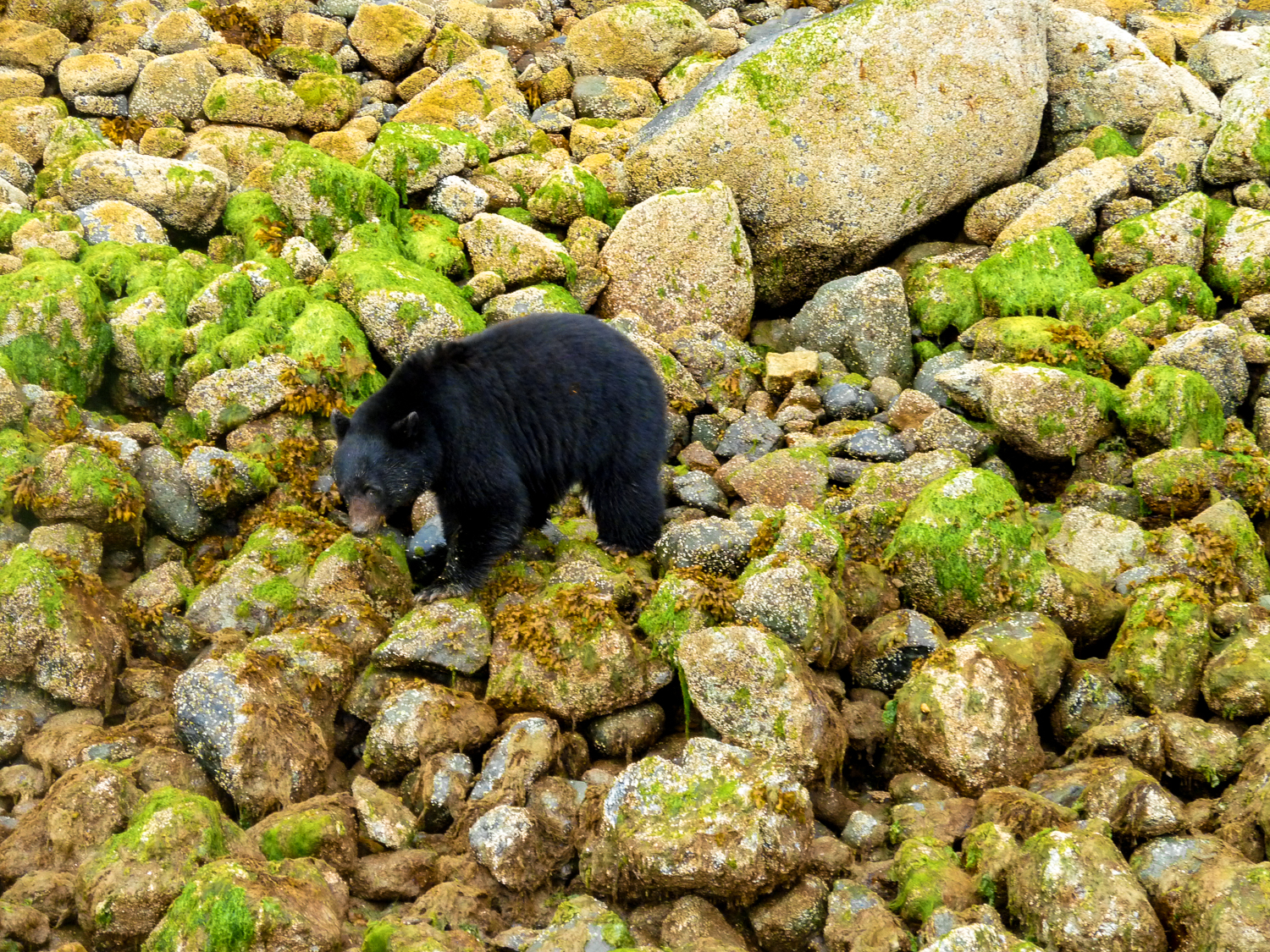
You’re in luck when it comes to the cost of activities and entrance fees in Canada, as most of what you see is beautiful Mother Nature herself! This is when road tripping is worth it, because driving through Canada is an experience in itself, with often jaw-dropping views just outside your window.
There are some attractions and parks, though, that are definitely worth seeing if you’re in the area. Learning from exhibitions at the Canadian Museum for Human Rights in Winnipeg, seeing whales in their natural habitat off the coast of Vancouver, and walking next to Niagara Falls are a few of my favourite travel experiences in Canada.
If you’re more of a nature or outdoorsy person, I’d recommend spending more time and money on activities and attractions in western Canada (B.C. and Alberta). If you’re more into history, the arts, and urban exploring, then central and eastern Canada (Southern Ontario, Montreal) will be more up your alley.
Here’s a breakdown of some my favourite attractions in Canada and their respective costs:
- CN Tower (Toronto): $32 per person
- Parliament Hill Tour (Ottawa): FREE
- National Gallery of Canada (Ottawa): $15 per person or FREE on Thursday evenings
- Banff Gondola (Banff): $43 per person
- Columbia Icefield Skywalk (Banff): $31 per person
- Whale watching (Vancouver): $133 per person
- Canadian Museum for Human Rights (Winnipeg): $14 per person or FREE on Sundays
- Anne of Green Gables Heritage Place: $7 per person
- Niagara Falls: FREE
Tours are really a great way to experience the country. I recommend hopping over to Get Your Guide for a range of activities and tours, like the Banff National Park Big Canoe Tour ($49), Ottawa sightseeing bike tour ($52) or a Niagara Falls Day Tour ($151).
And You Can’t Forget Travel Insurance!
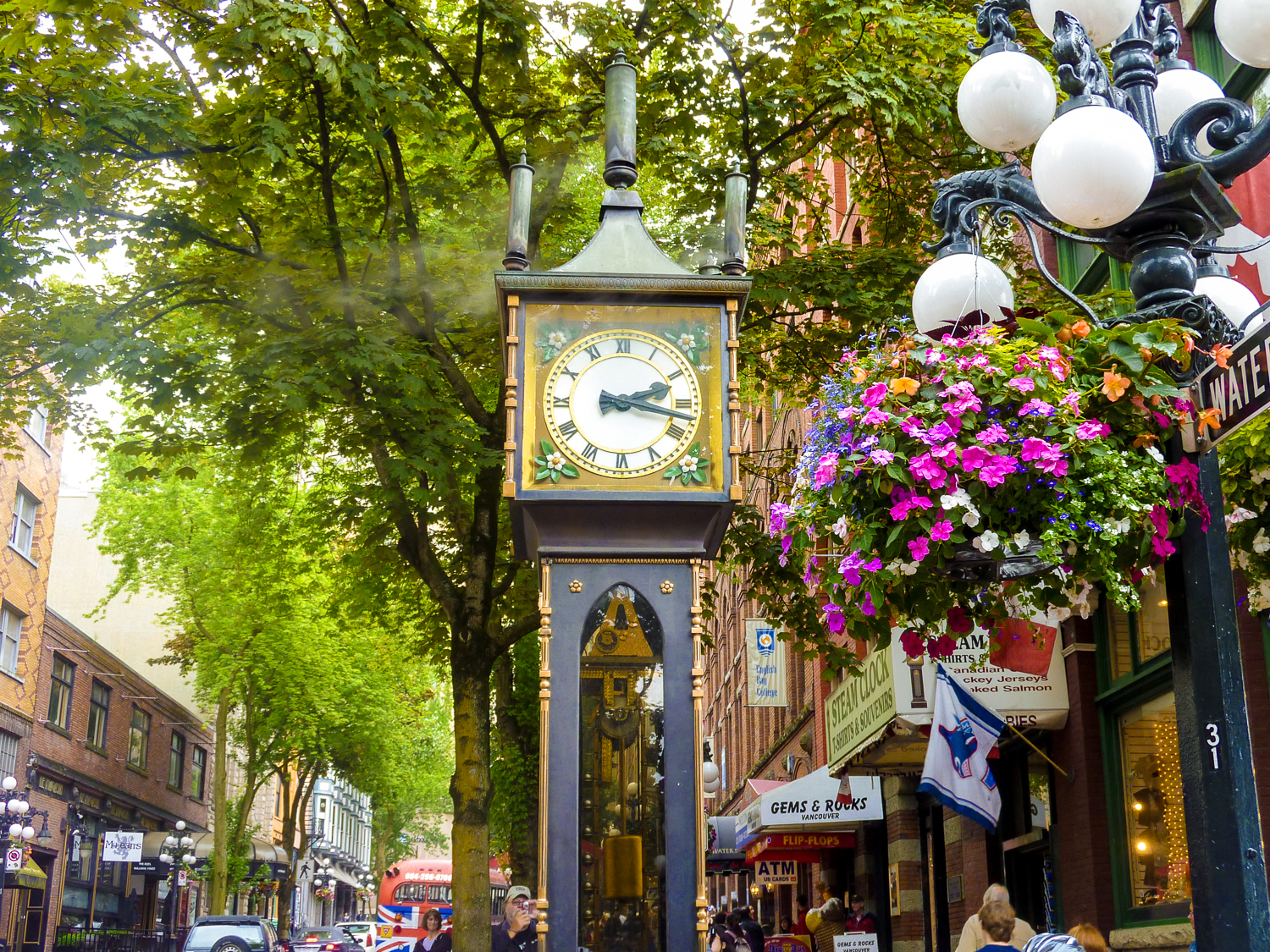
If you’ve read any other posts on Never Ending Footsteps, you’ll know that I’m a great believer in travelling with travel insurance. I’ve seen far too many Go Fund Me campaigns from destitute backpackers that are unexpectedly stranded in a foreign country after a scooter accident/being attacked/breaking a leg with no way of getting home or paying for their healthcare. These costs can quickly land you with a six-figure bill to pay at the end of it.
In short, if you can’t afford travel insurance, you can’t afford to travel.
Travel insurance will cover you if your flight is cancelled and you need to book a new one, if your luggage gets lost and you need to replace your belongings, if you suddenly get struck down by appendicitis and have to be hospitalised, or discover a family member has died and you need to get home immediately. If you fall seriously ill, your insurance will cover the costs to fly you home to receive medical treatment.
I use SafetyWing as my travel insurance provider, and recommend them for trips to Canada. Firstly, they’re one of the few companies out there who will actually cover you if you contract COVID-19. On top of that, they provide worldwide coverage, don’t require you to have a return ticket, and even allow you to buy coverage after you’ve left home. If you’re on a long-term trip, you can pay monthly instead of up-front, and can cancel at any time. Finally, they’re way cheaper than the competition, and have a clear, easy-to-understand pricing structure, which is always appreciated.
With SafetyWing, you’ll pay $1.50 a day for travel insurance.
How Much Does it Cost to Travel in Canada?
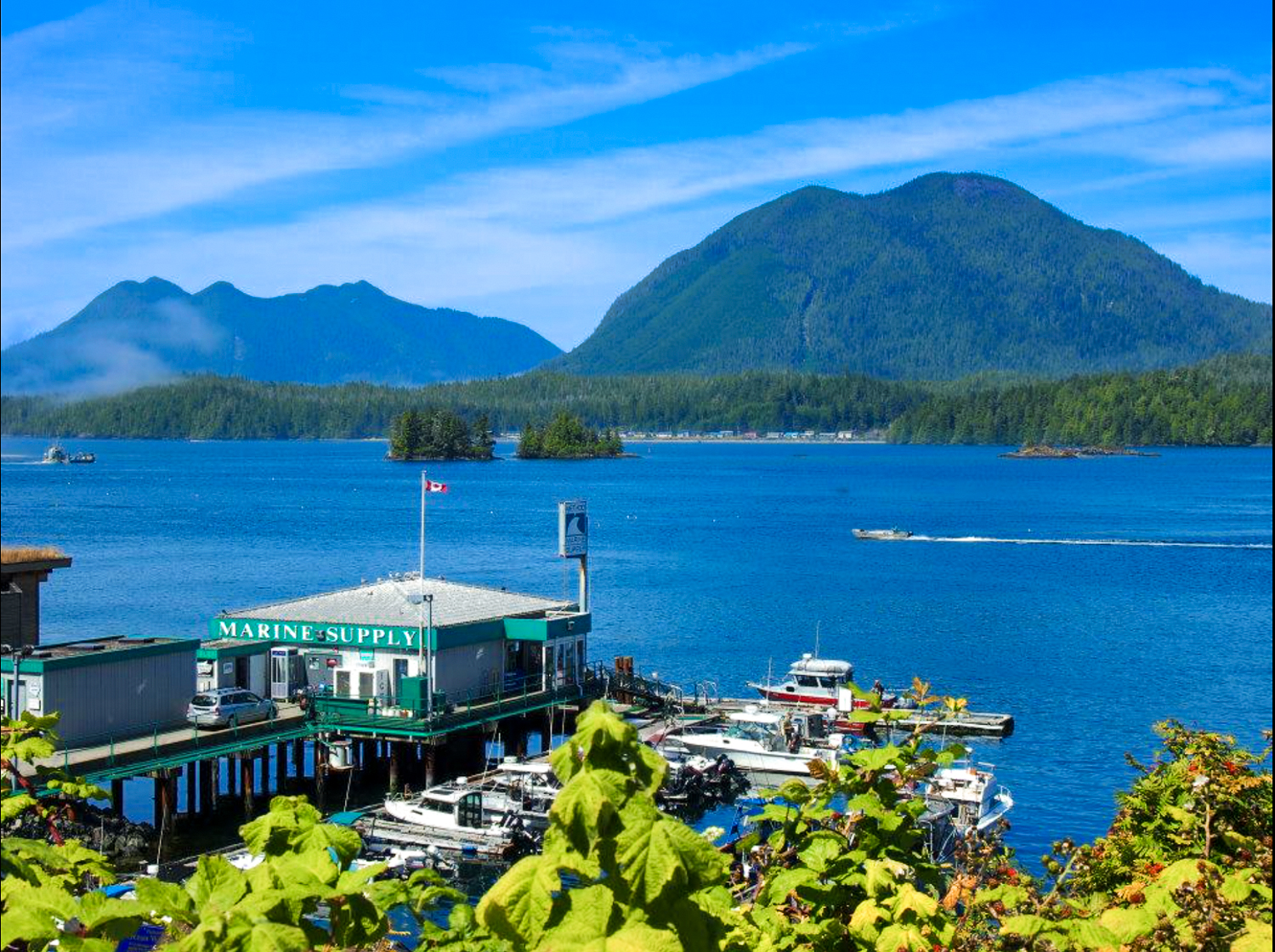
It’s time to tally up all of my expenses to see my total travel costs!
- Accommodation: $181 per day for two people ($90.50 per person)
- Transportation: $124 per day for two people ($62 per person)
- Food: $27 per day
- Activities/Entrance Fees: $16 per day
Average amount spent in Canada: $195.50 a day!
Author bio: Born and raised in Toronto, Lydia has found “home” throughout her travels around the world. She’s a passionate storyteller and writer and you can usually find her dreaming about new adventures or having a deep conversation with a friend.
Related Articles on Canada
🇨🇦 22 Wonderful Things to Do in Toronto
🍁 How to Spend Three Days in Montreal
🐳 How to Spend Three Perfect Days in Vancouver

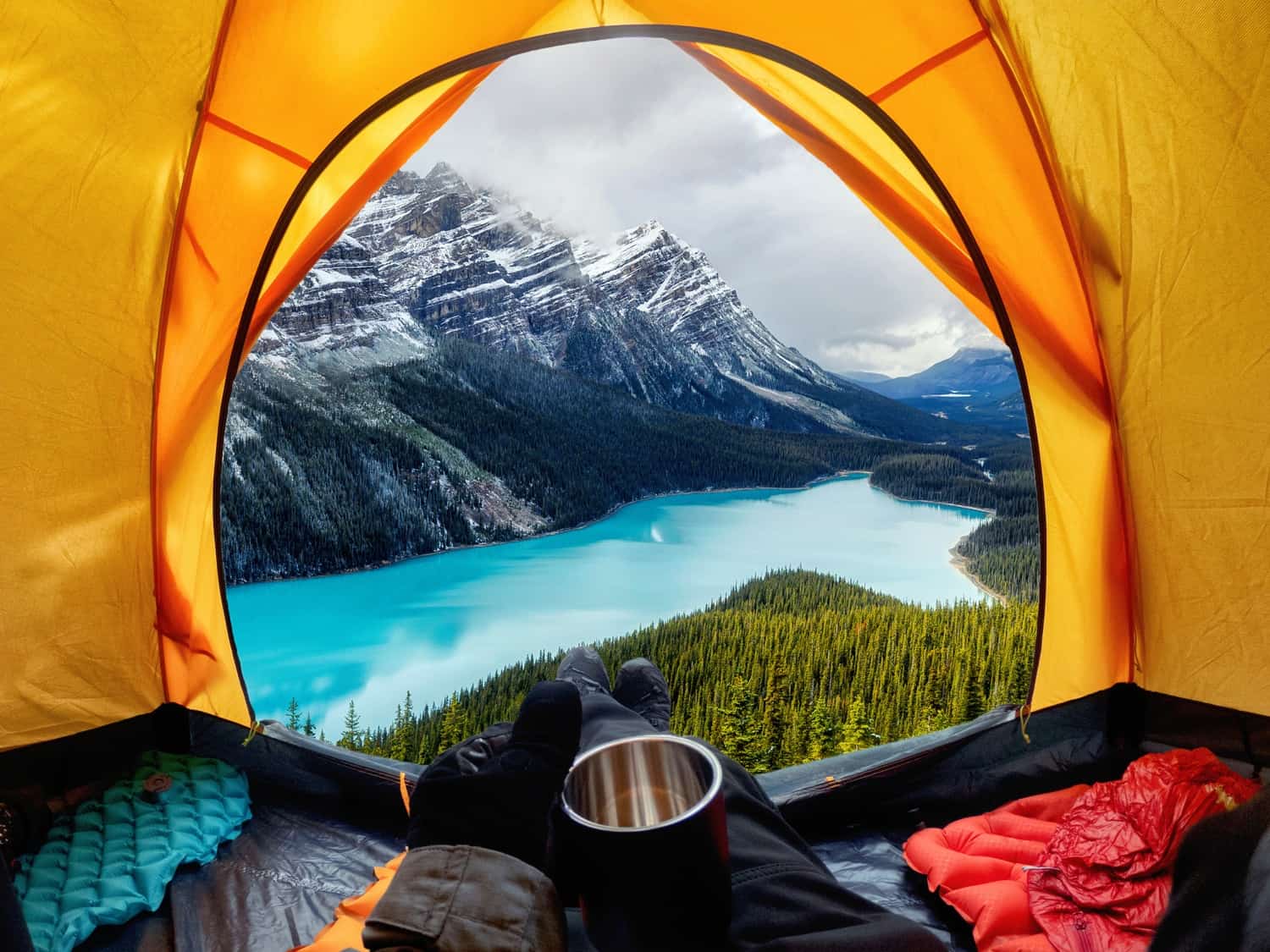
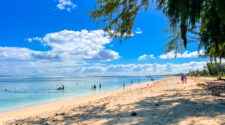

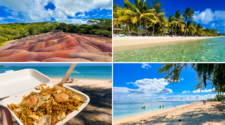

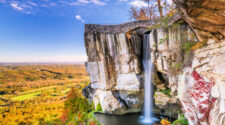

So nice to read some Canada content on your site! The one activity that’s on my Canada bucket list is seeing the polar bears in Churchill! Definitely a big ticket activity, but it looks soooo cool.
Ah, I totally agree! That’s very high on my list of things to do in Canada!
A great read, and good to hear that it doesn’t have to be too expensive. I love the idea of taking the train across Canada from east to west, and also road tripping and camping around the country. And like the other commenter mentioned, the polar bears! There’s so much to see and so little time.
Same, same, same! There’s so much to do in Canada that you could spend years exploring and barely even scratch the surface!
So useful! Especially as Canada is about to open its borders to international tourists next month. I can’t wait to visit — thanks for all the useful tips and information in this guide.
Hi Lauren, thanks so much for your recent post its very helpful.
My wife and I are coming to Canada-Vancouver, early June for 19 days. We are planning to do 4-5 days on Vancouver Island a few days in Vancouver and rest travelling towards Calgary/Edmonton before internal flight back to Vancouver (not set in stone ,but just our thoughts). We want to visit Whistler and travel the 2 peaks Gondola then travel onwards over the next few days to Lake louise/Calgary . We now feel that rather than travel onto Calgary then take an internal flight back to Vancouver, that the road and activities to Jasper is very appealing. Can you advise an opinion on whether it would be best to travel back to Vancouver from Whistler, and then fly to say Edmonton and travel to Jasper – Lake Louise before a return flight to Vancouver from Calgary. Do you think the road from Jasper to Lake louise is a better drive with the possible activities than Whistler to Lake louise?.
Kind Regards
Mark
Hey great post, really appreciate all the info. One thing though – we’ll be in Canada for a month, have iphones.. what would be the best sim for travellers? Is there a generic easy to buy one that we can get at the airport or.. should i just get a random travel one from online? Cheers